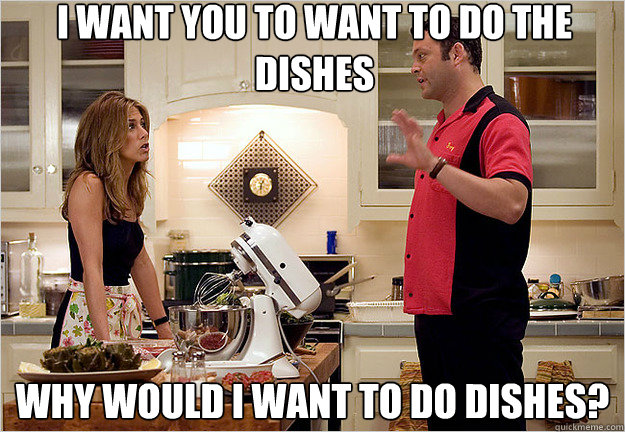How to Fight with Your Spouse Without Ending Your Marriage

Why would you want to know how to fight with your spouse? Because it’s a natural part of building a healthy, long-lasting relationship. Marriage in America has become something of a joke. Well, not really a joke – more of a statistical mess. Approximately half of all marriages in the US end in divorce. Clearly, we take commitment very seriously.
 There are many reasons marriages end, including:
There are many reasons marriages end, including:
- adultery (I wanted my cake…and some other cakes too)
- finances (I wanted more cake, but we always fought over our cake budget)
- life goals (She wanted lots of little cakes running around, but I hate cakes)
- sex goals (I like to eat cake and she can’t stand it)
- and so many more…
As a relationship coach, I notice communication between people a lot more critically than most. I listen to the words, the tone, and the body language couples use when speaking and/or arguing, and there are several tell-tale signs that a relationship is doomed. Rather than bring you down with all the reasons marriages fail, let’s explore how to fight with your spouse without ruining your marriage. [remember to Subscribe Here]

Show Notes:
- Mentioned Book: The Seven Principles for Making Marriage Work
- Follow-up (next level) Podcast: 5 Ways to Make Your Marriage Better Than Ever
Step One: Get Comfortable with Honesty
Number one reason for all failed relationships is dishonesty. No matter what the superficial reason is, dishonesty is what’s lurking beneath it. One of the greatest things you can do for yourself and your relationships is to become emotionally intelligent. What does this mean? It means you can notice and articulate what you feel. More advanced humans can also notice and articulate what others are feeling and adjust accordingly, without being told or asking questions.
If you want your relationship to flourish and last, be honest about who you are, where you feel most powerful, where you feel most vulnerable, and what you want. Many men end up in relationships that aren’t any good for us because we don’t speak up. We don’t know how to communicate effectively, so we see our over-communicative partners as “crazy bitches.”
This is unacceptable.
Own who you are and what you’re doing (and not doing) in relationships. A hard truth everyone needs to hear sometimes is that you may be the problem. If you keep ending up in dead-end or negative relationships, the common denominator is you. In the words of IceCube, you better check yourself before you wreck yourself.”

Step Two: Use the Pause Button
An incredible book called The Seven Principles for Making Marriage Work (buy this book) introduces you to triggers and flooding. These two elements exist in all relationships, and are particularly deadly when ignored. Essentially, during a heated discussion, your spouse is going to say or do something that will trigger a reaction in you. You’ll feel yourself switch gears and suddenly this isn’t a discussion, it’s a fight.
Millions of thoughts will rush through your mind, pouring adrenaline into your veins and clouding your judgement. You are flooded with so many emotions like anger, frustration, apathy, pride, resentment, etc. that you become reactive. Now that the trigger has caused you to be flooded, you cannot fight fair.
You MUST hit pause and walk away.
When one of you is flooded, there’s no combination of words or apologies that will make it better. Walking away for 20 minutes to cool off is absolutely the best way to tackle a heated disagreement. Let your spouse know that you’re not walking away because you don’t care; rather, you’re walking away because you both need 20 minutes to process, cool down, and come back. Make sure this is about you cooling off, and not you telling her she needs to cool off.
That, my friend, is an open invitation for murder.
When you come back to the table after each taking 20 minutes to collect yourselves, you’ll be able to approach the conversation differently. Let’s look at it another way. Remember the last petty fight you had with a coworker, bully, boss, spouse, etc.? I’m willing to bet you knew exactly what to say after the fight ended, didn’t you? It’s those moments of clarity 20 minutes later that give us that, “THAT’S what I should have said” moment. Only this time, you’re coming back to the fight to reconcile and understand, rather than getting the last hurtful word in.

Step Three: Recognize and Avoid the Four Horsemen of the Relationship Apocalypse
Here’s the secret sauce to fighting with your spouse like a champ: you both need to know the Four Horsemen of the Relationship Apocalypse and recognize when each has shown up. Simply becoming aware of criticism, defensiveness, stonewalling, and contempt makes your relationship exponentially stronger. Again, this comes from John Gottman’s book. Seriously, buy it. Let’s explore each horseman and how you can avoid his arrival.
Criticism
The easiest way to understand criticism is to pair it with a complaint. A complaint is an attack on something done or not done. A criticism is an attack on the person involved. For example, let’s imagine you didn’t take the garbage out last night and your spouse has something to say about it:
 Complaint: “John, you forgot to take out the garbage. Now the garage is going to stink for another week.”
Complaint: “John, you forgot to take out the garbage. Now the garage is going to stink for another week.”
Criticism: “What the hell, John. You forgot the garbage again. Why can’t you just do one simple thing for me? It’s like you’re not even listening…”
Yes, this is a pretty stark difference to use as an example, but not an uncommon one. When criticism comes into the mix, John isn’t thinking about the garbage, he’s thinking about how she’s making him feel small and less of a man than he was 5 seconds ago. The garbage is irrelevant now. He must defend himself. Enter the next horseman…
Defensiveness
Now that John is under attack, he feels like he must fire back. I mean, c’mon, she started it, right?
“Oh really, Karen? It’s always my fault for everything! No matter what I do, you always find some trivial thing to complain about and ruin it!”
Yikes. This is criticism fired back under the guise of defensiveness. Truth be told, the words and emotions gain strength each time they pass between the two parties, which makes defensiveness a meaner, sharper, more poignant version of criticism. And, more often than not, it is communicated with added volume. They’re both triggered and are potentially flooded, which means they should just take a deep breath and walk away for a bit. Instead, they press on…
 Contempt
Contempt
Criticism’s favorite cousin, Contempt, rides into the room ready to make you absolutely loathe your partner. Contempt is disgust. It is always disrespectful. Here’s where a lot of body language and tone comes into play. Name-calling, eye rolling, sneering, mockery, and sarcasm so thick you could cut it with a knife. Contempt has the ability to accelerate a disagreement into a divorce if left untethered.
“You can’t remember to do anything, John! I’m surprised you remember to wipe your own ass!”
“You’re just like your mother! Jesus Christ, there’s just no pleasing you, is there Karen?!?”
BOOM. “I’ll take things you wish you never said for $500, Alex.”
At this point, they’re both flooded with rage, contempt, and she may also be homicidal. They need to walk away from this fight for a half hour and collect themselves. The hardest part about this stage, especially after the “you’re just like your mother” comment, is the walkaway isn’t for the right reason. Instead, it’s the fourth horseman, and it’s punishment.
 Stonewalling
Stonewalling
“You know what? No. I have nothing to say to you.” (Either party can say this and then abruptly shut down)
This is the point where one or both parties is done with the conversation. No, the argument is not over; rather, we’ve reached the “you’re impossible so I’m going to ignore you until further notice” stage. This is stonewalling, a.k.a. the silent treatment. Sometimes couples split up for a day and process their anger and frustration, and come back to each other. Sometimes one party will completely ignore the other for days or even weeks (while living together).
This is also unacceptable. You are doomed. When all four horsemen have bedrooms at your house, your relationship doesn’t stand a chance. So what’s the solution? Learn how to fight with your spouse without ruining your marriage by creating awareness around the triggers and horsemen.
When you both know what it looks like when each emotion and hurtful phrase arrives, you’ll be equipped to say things like, “I feel like I’m getting defensive and I don’t want us to fight,” instead of just heating up and making things worse. Truly, that phrase may sound crazy, but it will make a difference in the speed and trajectory of your discussion. It will work, but only if you breathe and allow yourself a moment to respond, instead of immediately reacting.
 The principle of responding rather than reacting to life is fundamental to your happiness and health, my friend. It is of paramount importance in your relationships as well. When you react to things, your brain kicks in, and before you know it, you’ve made a knee-jerk decision and acted (or spoken). When you respond to things, you take an extra moment to breathe before you say or do anything. It allows you to actively choose what happens next.
The principle of responding rather than reacting to life is fundamental to your happiness and health, my friend. It is of paramount importance in your relationships as well. When you react to things, your brain kicks in, and before you know it, you’ve made a knee-jerk decision and acted (or spoken). When you respond to things, you take an extra moment to breathe before you say or do anything. It allows you to actively choose what happens next.
In the case of John and Karen, they reacted the entire fight. This invited the horsemen, and the emotional house burnt to the ground. My advice to you, as a professional, is to have a conversation with your spouse/partner about all of the things in this article (and this book – have you bought it yet?), and design your alliance. That means the two of you will agree that you both want the same thing and will take steps to do the following when getting into a heated argument:
- Focus on the complaint only
- Scan for whatever is valid in your partner’s complaint and address that
- Speak respectfully even when angry
- Practice holding yourself and your partner in warm regard, even when feeling distant during a fight
- Make all requests of your partner clear, simple and specific
Seriously, you will notice a huge improvement in your relationships when you don’t play into the criticism. You’ll notice that criticism stops showing up. Complaints will come, of course. We’re all human. But they’ll stay as complaints, and won’t often escalate. If an argument does heat up and things start turning sour, you’ll be aware enough to notice the direction, call it out, and agree to walk away for 20 minutes. Trust me, you’ll think it’s magic, it works so well.

Step Four: Finish Fights with a Moment of Praise and Gratitude
Okay, I’ve lost my mind, right? You’ve made this far into a full scoop of self-helpey relationship building, and for that, I’m proud of you. Don’t give up now. A man in constant relationship turmoil is not a gentleman. Think about it. When’s the last time you saw a gentleman and his spouse yelling at each other? Exactly. Gentlemen have finesse and exemplary communication skills. Be that guy.
After every fight, give it a few minutes and then remind each other why you’re in the relationship to begin with. When you finish an argument, even though it may be resolved, being reminded that you’re loved or appreciated goes a long way, doesn’t it? Your world changes when after a fight with your spouse, she tells you, “You know I love you. Nobody makes me laugh as much and as hard as you do.” This goes both ways. Tell her how much you love or appreciate her, and you will ignite passion instead of dormant rage.
You’ll always disagree on things. That’s part of life and love. You will fight, but you don’t ever have to put your relationship in jeopardy, unless you choose to. Now that you know how to fight with your spouse without ruining your marriage, you have the power to build an even better relationship with her.
What are your keys to keeping your cool when arguing with your partner? Do you have a technique or trick you wish you knew earlier on in your relationship? Share in the comments below so we can connect!




